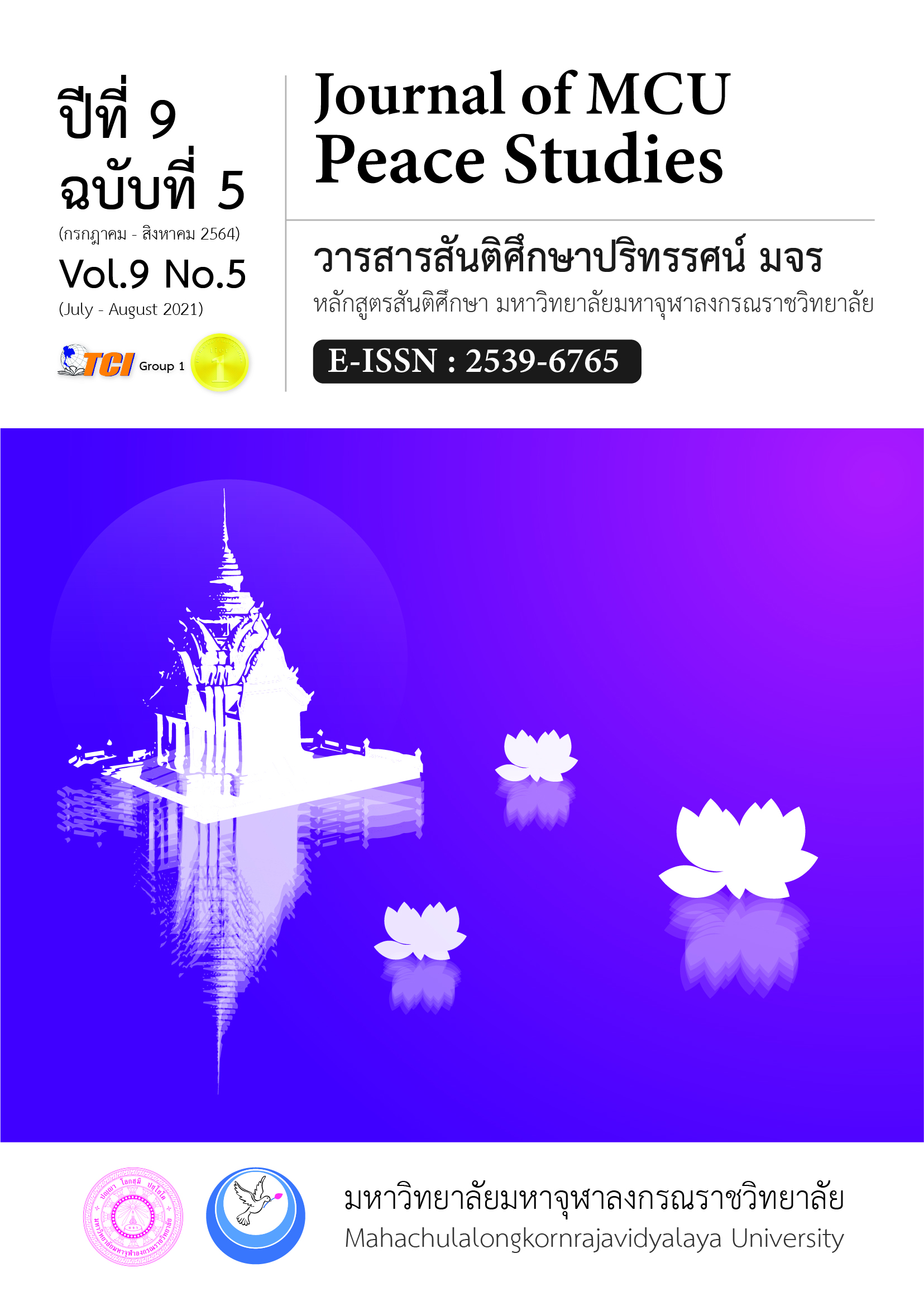Chinese Governance Model of the New Rural Elite in Yongchuan, Chongqing: A Case of Confucianism-law Conflict
Main Article Content
บทคัดย่อ
“Rule by Confucianism” and “Rule by law” are completely different social orders and governance models originated from completely different cultures, histories and logicality. In the process of China's rural social transformation, the two concepts have come into conflict. The case in Chongqing is by far the most successful case of new rural elites participating in governance and solving the Confucianism-law conflict in China. Therefore, this qualitative research aimed at: 1) understanding selection process and the roles of new rural elite in Chongqing, 2) clarifying relationship between new rural elite and local residents/ local government, 3) studying how new rural elite take action on solving the Confucianism-law conflict. The sample was seven new rural elites, three local government officers and ten residents. One-on-one semi-structured interview, focus group interview and observation were conducted as triangulation data collection in this study. Seven new rural elites, ten residents and three local government officers are selected participants. Data analysis of this paper applied grounded theory approach.
The main results in this research are summarized as follows: 1) there are four major functions on new rural elites and five requirements and seven steps for their selection. 2) The evaluation of local people and government on new rural elite can be divided into positive and negative aspects. 3) The new rural elite in Chongqing mainly adopt practical solutions and fundamental solutions to local Confucianism-Law conflicts.
Article Details
ทัศนะและความคิดเห็นที่ปรากฏในบทความในวารสาร ถือเป็นความรับผิดชอบของผู้เขียนบทความนั้น และไม่ถือเป็นทัศนะและความรับผิดชอบของกองบรรณาธิการ ยินยอมว่าบทความเป็นลิขสิทธิ์ของวารสาร
เอกสารอ้างอิง
Chongqing Statistics Bureau. (2018). Chongqing Statistical Yearbook. Retrieved April 3, 2020, from http://tjj.cq.gov.cn/zwgk_233/tjnj/2017/indexch.htm
Di, J., & Zhong, Z. (2014). A Study on the Grass-roots Governance in Chinese Traditional Rural Areas: Transformation from the Main Body to the Rule. Sociological Study, 29(5), 73-97.
Ding, Z., & Zhang, L. (2018). Study on the Dilemma and Countermeasures of Rural Governance and the Construction of Rural Style Civilization. Development and Research, 34(5), 116-121.
Fei, X. (1998). From the Soil: the Foundations of Chinese Society. Beijing: Peking University Press.
Ji, Z., & Shi, H. (2018). Study on Inheritance and Innovation in the Construction of New Rural Elite Culture. Jiangsu Social Science, 30(1), 181-186.
Lang, Y., Zhang, P., & Xiao, K. (2017). The effectiveness of new rural elite and rural government. Journal of ZheJiang Party School of C.P.C., 32(4), 16-24.
Li, N. (2017). Study on the Role of Rural Elite Culture and Its Governance in the Reconstruction of the Authoritative Order of Modern Rural Society. Academics, 21(11), 74-81.
Li, Y. (2004). Study on the Rule of Confucianism in Qing Dynasty. The Manchu Studies, 15(2), 25-31.
Maxwell, J. A. (2012). Qualitative research design: An interactive approach Thousand Oaks. California: Sage.
Peng, R. (2019). County Sages Participating in the Rural Governance Based on the Rural Vitalization Strategy. Journal of Yunnan Agricultural University (Social Science), 13(1), 1-5.
Qian, J., & Ma, J. (2016). A Review of Researches about the Culture of New Rural Elite in China. Journal of Beijing Vocational College of Agriculture, 30(4), 51-55.
Qu, T. (2003). Chinese Law and Chinese Society. Beijing: Zhonghua Book Company.
Ren, W., & Huang, L. (2009). Study on National Law in Chinese Rural Society. Legal System and Society, 3(8), 19-20.
Tian, C. (2001). Study on National Law and Folk Law in the Countryside. Journal of Yunnan University (Humanities and Social Sciences), 27(5), 81-86.
Xu, X. (2005). Study on the Conflict between Legal and Political Order in Rural Areas. Youth Research, 11(4), 27-32.
Wang, L. (2015). Confucianism and Law in the Transformation of Chinese Rural Society: from the Perspective of Ethics. Chinese Social Sciences, 36(7), 94-107.
Wang, Y., & Wang, X. (2009). Study on the Dilemma in the Transformation from Rule by Confucianism to Rule by Law in Rural China. Journal of Zhejiang Provincial Party School of C.P.C., 24(6), 101-104.
Zhang, X. (2016). The Reconstruction of Social Order from the Perspective of Rural Elite Culture. Jiao Yu Wen Hua Lun Tan, 7(3), 109-115.
Zhao, X. (2012). From Rule by Confucianism to Governance: the Interpretation of Chinese Rural Political Paradigm. Commercial Age, 30(6), 8-9.


